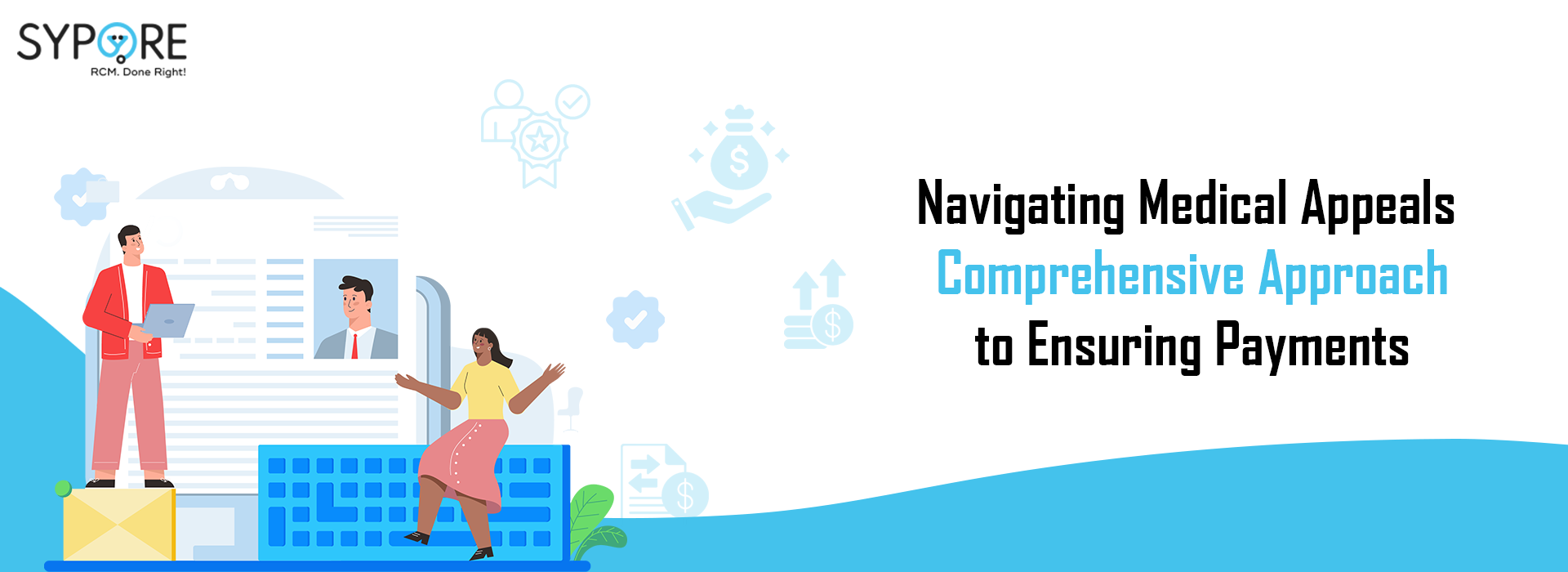
23 Jan Navigating Medical Appeals: Comprehensive Approach to Ensuring Payments
In the ever-evolving landscape of healthcare, navigating medical appeals is crucial for ensuring that laboratories and healthcare providers receive the payments they deserve. This article explores a comprehensive approach to tackle the challenge of medical appeals, focusing on understanding the medical appeal process, common reasons for denials, and actionable steps to strengthen your approach. We’ll also highlight Sypore’s successful strategy in meeting insurance medical record requests and filing comprehensive appeals.
Understanding the Pain Point
One of the significant pain points for laboratories and healthcare providers is dealing with insurance companies when they operate out-of-network. Several payers often ask for medical records to prove the medical necessity of tests and procedures. These requests can be time-consuming and complex, leading to delays in payments or outright denials. Addressing this issue effectively is critical for the financial health of providers.
Sypore’s Comprehensive Approach
Meeting Insurance Medical Record Requests
Sypore has been diligently fulfilling insurance medical record requests to ensure that all necessary documentation is provided promptly. By adhering to best practices, Sypore ensures that the records submitted are thorough, accurate, and timely, which helps avoid unnecessary delays and denials.
Filing Comprehensive Appeals
When a claim is denied, Sypore takes the necessary steps to file comprehensive appeals. These appeals are meticulously crafted to explain the patient’s diagnosed symptoms and the necessity of the tests conducted. By providing detailed and persuasive documentation, Sypore has successfully overturned numerous insurance non-payment determinations, including those from Medicare.
The Medical Appeal Process
The medical appeal process is a formal approach used by healthcare providers to contest a denied insurance claim. While each payer has its own rules and timelines, the overall process follows a structured format.
Types of Appeals
Internal Appeal: Requesting the insurance company to review and reconsider the denial within their organization.
External Appeal: If the internal appeal is unsuccessful, requesting an independent review by a third party, typically mandated by regulations.
Appeal Process Overview
Identify the Denial: Review the Explanation of Benefits (EOB) or Electronic Remittance Advice (ERA) to understand why the claim was denied.
Review Insurance Policies: Ensure the original claim met all submission criteria.
Prepare the Appeal: Collect relevant documentation and draft a compelling argument.
Follow Up: Track the appeal status and provide additional information if requested.
Common Reasons for Denials
Incomplete or Incorrect Documentation: Missing medical records or inaccuracies in patient information.
Lack of Medical Necessity: Services deemed not medically necessary based on payer guidelines.
Coding Errors: Mistakes in CPT, ICD-10, or modifiers.
Timely Filing: Claims submitted after the payer’s deadline.
Authorization Issues: Failure to obtain pre-authorization or proper referrals.
Preparing an Appeal
Understand the Denial Reason: Review the denial code and payer’s explanation.
Collect Supporting Documentation: Include all relevant patient records and notes.
Craft a Strong Argument: Clearly explain the necessity of the service and address any payer errors.
Follow Timelines: Submit the appeal promptly.
Use Appeal Templates: Ensure compliance with payer requirements.
The Role of Technology in Streamlining Appeals
Cutting-Edge Software
Automated Denial Tracking: Tools like Change Healthcare and Optum360 track denials and prioritize claims.
Integrated EHR and Billing Systems: Systems like Epic and Cerner ensure proper documentation.
AI-Powered Coding Tools: AI solutions such as 3M 360 Encompass reduce coding inaccuracies.
Benefits of Technology
- Speeds up the appeal process by automating tasks.
- Reduces errors through accurate coding.
- Enhances communication with real-time updates.
Tips for Preventing Future Denials
Invest in Training: Regularly train staff on payer policies and coding updates.
Pre-Authorization Checks: Verify authorizations before services.
Check Eligibility Early: Confirm patient coverage before submitting claims.
Leverage Analytics: Use data to identify patterns in denials.
Streamline Billing Workflows: Improve claim accuracy and submission speed.
Master Medical Appeals and Boost Efficiency
Navigating medical appeals can feel overwhelming, but understanding the process, recognizing common pitfalls, and leveraging technology can transform it into an opportunity. By actively managing denials, preparing solid appeals, and implementing preventive measures, healthcare providers and medical billers can safeguard their revenue streams.
Sorry, the comment form is closed at this time.